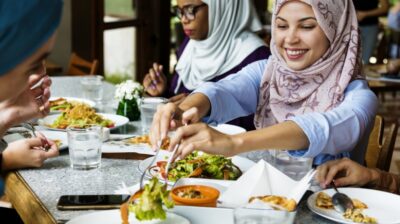Achieving a balanced vegetarian or vegan diet
Vitamins and nutrients to include in a vegetarian or vegan diet

Many people choose to follow a vegetarian or vegan diet for personal, ethical or health reasons. It is very possible to have a nutritious and satisfying diet while vegetarian or vegan, but there can be some additional considerations. If you are thinking of changing your diet, consider why you want to do so before making these changes.
When avoiding animal products, it is important to substitute them with alternatives. This list breaks down the various things (macronutrients and micronutrients) to consider when planning these kinds of diets.
The difference between a vegetarian and vegan diet
While there are many similarities between a vegetarian and a vegan diet, there are a few key differences.
Vegetarian
A vegetarian is someone who does not eat meat or poultry (chicken, duck, turkey, etc.) but eats eggs and milk products (cheese, yoghurt, butter, etc).
Vegan
A vegan is someone who does not eat any food that comes from an animal. This means cutting out meat, poultry, fish, milk, eggs, most cheeses and yoghurts, butter, and any foods that contain these ingredients.
Plant-based
Someone who follows a plant-based diet may eat mostly vegetarian or vegan but may sometimes eat foods that do not conform to those diets. Some people who are vegetarian or vegan also prefer to use this term to describe how they eat.
How to achieve a healthy vegetarian or vegan diet
It is possible to have a nutrient-rich, balanced and healthy diet as a vegetarian or vegan. Paying attention to what you’re eating and what vitamins and nutrients you’re getting from each meal will help you to stay healthy and have more energy.
Here are some things to consider when planning a vegetarian or vegan meal.
Protein
Protein is necessary to build and repair body tissues and is essential for growth. Our tissues are continually being broken down and replaced, so protein is needed every day.
Protein is made up of amino acids, and some of these amino acids can only be found in the food we eat. This means we need to make sure we are eating enough food with these amino acids every day. Animal foods (e.g. eggs, milk, cheese, yoghurt and soya products) provide these amino acids.
Some high protein vegetarian foods include:
- Eggs
- Cottage cheese
- Greek yogurt
Some high protein foods that both vegetarians and vegans can eat include:
- Lentils
- Quinoa
- Chickpeas
- Tofu and tempeh
- Beans
- Oats
- Chia seeds
- Nuts and nut butter (like almond or peanut butter)
These are just some of the options vegans and vegetarians have for adding protein to meals. Try to make sure you have at least one protein source in every meal.
Iron
Iron is essential for the formation of red blood cells, which carry oxygen to all parts of the body. A low level of iron in the body is called anaemia, and causes symptoms such as a pale face colour, tiredness, and loss of appetite. If you’re feeling very tired on a vegetarian or vegan diet, you may need to increase your iron intake.
Foods containing iron include:
- Leafy greens like spinach
- Tofu or tempeh
- Lentils
- Chickpeas
- Black-eyed peas
- Seeds like pumpkin, sesame, hemp or flax seeds
- Nuts such as cashew nuts
Vegetarian women, trans men, and teenagers should pay special attention to include iron rich foods in their diets every day. Sometimes an iron supplement may be required. Always check with your doctor or pharmacist before taking any supplements, because too much iron can be dangerous and supplements should only be taken if they’re needed.
Vitamin C
Vitamin C is good for boosting your immune system and helping you to recover from sickness faster. It also increases how much iron your body absorbs. Foods that are rich in Vitamin C are great to eat alongside foods that are rich in iron.
Vitamin C can be found in:
- Citrus fruits and their juices such as oranges
- Kiwis
- Blackcurrants
- Tomatoes
- Broccoli
- Brussel sprouts
- Cauliflower
- Peppers
These are just some of the foods that are rich in Vitamin C.
Calcium
Calcium is essential for the formation of strong bones and teeth. During adolescence, bones are developing and they continue to become more dense until the age of 35. Eating enough calcium and taking regular exercise during these years, is vital to protect against developing osteoporosis (a condition which causes the body to lose bone or to stop making enough bone) in later life.
Products with calcium include:
- Calcium fortified milk
- Dairy yogurt and cheese
- Soya milk
- Cabbage
- Broccoli
- Almond nuts
- Brazil nuts
- Sesame seeds
- Tofu
Vegans and some vegetarians may need to take a calcium or vitamin D supplement as they continue with their diet.
Zinc
Zinc is an essential nutrient for health and growth. Vegetarian diets may not always provide us with enough zinc, therefore it is important to regularly eat zinc rich foods.
Source of zinc include:
- Cheese
- Pulses
- Nuts
- Seeds
- Wholegrain cereals
Vitamin B12
Vitamin B12 is essential for healthy blood and nerve cells.
Sources of vitamin B12 include:
- Dairy foods
- Eggs
- Yeast extracts
- Some vegetable stocks
- Textured vegetable protein
- Soya milk
- Fortified breakfast cereals
It is especially important that vegans include a source of vitamin B12 in their diet. B12 only occurs naturally in animal products. As well as eating fortified foods like those listed above, vegans should consider B12 supplements. Talk to your doctor, GP or dietitian about your vegan diet before adding any new supplements to your diet.
Vitamin D
Vitamin D is needed for healthy bones and teeth.
The main sources of vitamin D for vegetarians include:
- Eggs,
- Dairy foods such as butter, cheese and milk,
- Oily fish,
- Fortified soya milk,
- Fortified margarine and oily spreads
Most people receive enough vitamin D by the action of sunlight on the skin, but those with little sun exposure may need a vitamin D supplement.
Vegan diet alternatives
Vegan alternatives to meat, dairy and eggs are becoming more popular, and can open up a wider range of possible foods and recipes to eats.
Dairy substitutes
When it comes to milk, there’s a lot more out there than just cow’s milk. Here are some alternative milk options to try:
- Soy milk
- Almond milk
- Rice milk
- Oat milk
- Coconut milk
Coconut oil can also be used as a spread instead of butter, and you can also use nut butter, like peanut or almond butter, as a spread on toast, bagels, or bread.
There are also plenty of soy cheeses available.
Eggs
If you are baking sweet foods such as cake, applesauce or mashed bananas can be used as a replacement. For savoury use, most health food shops also sell egg replacer products. You can also make egg replacers at home using a mix of flax or chia seeds and water.
Sweeteners
Some vegans do not eat regular table sugar because when sugar cane is refined from its plant source, it is passed through activated charcoal, which may be of animal origin.
Alternative vegan sweeteners include maple syrup, raw cane sugar, brown rice syrup, and stevia. Honey is subject to debate, and some vegans choose not to eat it because it is produced by bees, while others do.






